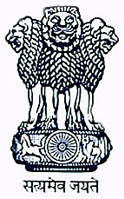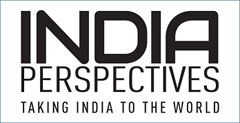Mr. President
Excellencies
Distinguished colleagues
It is an honor to address the High-Level Segment of the Conference on Disarmament under the Presidency of Brazil, a fellow G-21 country with which India enjoys excellent bilateral relations.
Mr. President
The Covid-19 pandemic has been perhaps the most disruptive global event in our collective memory. While the pandemic exposed the vulnerabilities, it has also underlined the need for global solidarity and strengthened multilateralism.
Prime Minister Modi, by delivering on his promise at the UNGA to make Indian manufactured vaccines affordable and accessible to all of humanity, has once again shown that India is a force for global good. We have the same approach to global issues, including those pertaining to international security and peace. In this regard, India is also making an important contribution as a non-permanent member of the UN Security Council for 2021-22.
We begin this year with hope and expectation. India has welcomed the extension of the New START Treaty between the Russian Federation and the United States. However, much work needs to be done by us in the Conference on Disarmament. We need to rise above our differences, and demonstrate political will and genuine intent to find consensus to deliver on our collective mandate. Those resorting to politicization only weaken the mandate of this Body.
Mr. President
As the world’s single multilateral disarmament negotiating forum, as mandated by the Special Session on Disarmament (SSOD) -1, the CD’s agenda deals with critical challenges of disarmament and international security facing the international community. India advocates a comprehensive and balanced Programme of Work to enable the Conference to commence negotiations on issues of pressing global importance.
India is committed to the goal of universal, non-discriminatory and verifiable nuclear disarmament. Our call for complete elimination of nuclear weapons through a step-by-step process, as also outlined in our Working Paper on Nuclear Disarmament submitted to the CD in 2007 (CD/1816) has an enduring relevance. India reiterates its call to undertake the steps outlined in the Working Paper, including negotiation in the CD of a Comprehensive Nuclear Weapons Convention.
India has supported the immediate commencement of negotiations in the CD on a Fissile Material Cutoff Treaty (FMCT) on the basis of CD/1299 and the mandate contained therein, which remains the most suitable basis for negotiations. I reaffirm today, India’s readiness to participate in FMCT negotiations in the CD.
India, as a responsible nuclear weapon State, is committed as per its nuclear doctrine, to maintain credible minimum deterrence with the posture of no-first use and non-use against non-nuclear weapon States.
Prevention of an Arms Race in Outer Space (PAROS), is another long standing item on the CD’s agenda. India looks forward to an early start of negotiations of a legally binding instrument on PAROS to address pressing issues relating to space security.
Mr. President
In line with the SSOD-1’s emphasis on promoting expertise in disarmament and in empowering our younger generations, India has hosted a fully funded Annual Disarmament and International Security Fellowship Programme for the last two years to advance disarmament education. I take this opportunity to invite fellow Member States to participate in this programme.
Mr. President
This Conference has been plagued for too long by fear, suspicion and mistrust. As Mahatma Gandhi said, the only cure for fear is faith; for suspicion, sincerity; and for mistrust, trust.
This is just what the Conference needs today, to break its long deadlock and make concrete progress. India stands ready to play its role and work with fellow Member States to achieve our collective objectives.
Thank you.***












